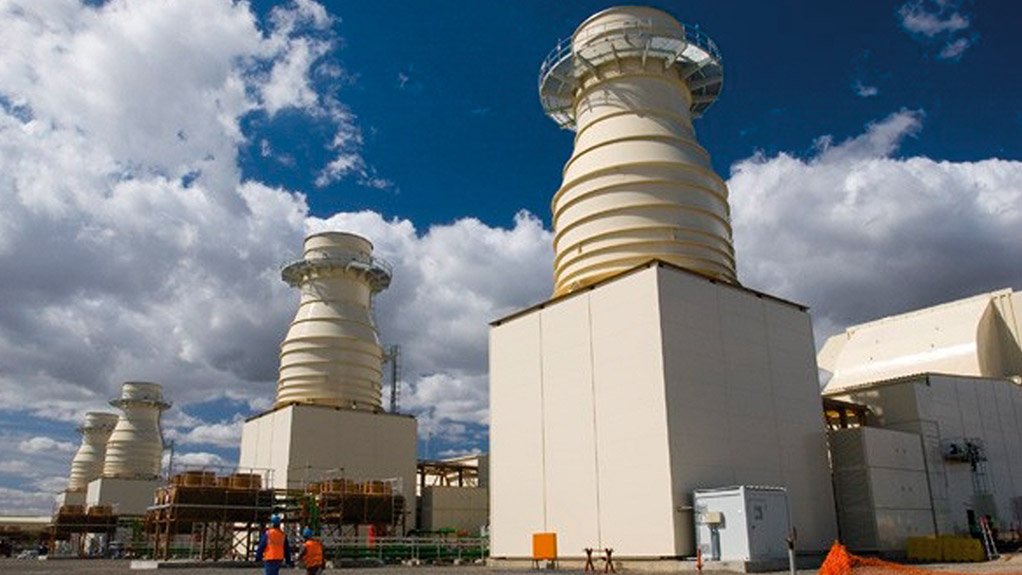Eskom, Treasury at odds over diesel funds as loadshedding crisis deepens
As chronic loadshedding continues indefinitely, a behind-the-scenes dispute has broken out between National Treasury and Eskom over where the money should come from to buy more diesel.
The only immediate way to reduce loadshedding is for Eskom to burn diesel to power its open-cycle gas turbines. All other possible solutions to reduce loadshedding have a longer lead time of at least 18 months to two years.
In meetings with political parties, organised labour and business on Monday, chaired by President Cyril Ramaphosa, the key message from the Eskom board and management was that loadshedding is here to stay for the next two years.
The meetings provided the first insight into the thinking of the new board on its turnaround plan for Eskom, indicating that it, too, has found no silver bullet to South Africa's crippling energy shortage.
A steady supply of diesel would reduce loadshedding by two stages. Eskom announced in December that it had run out of money to buy diesel and had already overspent its diesel budget.
But News24 has learned of a recent decision by the Public Investment Corporation (PIC) to roll over R13-billion of Eskom debt when it becomes due on 25 January. This was confirmed by the PIC on Monday.
The rollover has led to an expectation in the Treasury and, more widely, in the government that Eskom will now have available cash to buy diesel as the company will be able to draw down money made available by Treasury for debt servicing.
But Eskom said on Monday that it did not have spare cash and that the PIC rollover had already been figured into its plans.
In reply to questions, Eskom said:
"The rollover is in the process of being executed. However, both the equity from Treasury and the rollover of Eskom's redeemable debt with the PIC form part of Eskom's annual borrowing programme for the financial year ending 31 March 2023. Accordingly, neither source represents additional liquidity with which to purchase diesel."
This view is supported by credit analysts who have confirmed that in engagements with Eskom at the end of December, the PIC rollover had been included in Eskom's funding plan, even though it had not been confirmed.
Intellidex lead analyst on capital markets Peter Attard Montalto said that Eskom's funding plan would leave it with almost no cash at the end of March 2023.
"Eskom has an existing fundraising plan which it is executing including private placement rolls, but this still brings them, including NT bailouts, to low single-digit cash levels at the end of the year. As such, there is absolutely no liquidity or 'extra' or 'new' funding to pay for diesel. I think many people don't quite realise how low year-end cash levels are going to be and this is indeed why more bailout may be needed in the next fiscal year."
Credit analyst at Nedbank CIB Jones Gondo said that Eskom and government were "speaking past one another" on the PIC debt. It was unrealistic to think that Eskom would physically have cash available due to the rollover because the entity has so many competing needs; especially considering the severity of its negative cash flow position.
In an update on the power system for the next 24 hours, Eskom announced that it had been able to procure an additional 50-million litres of diesel, which "will be utilised sparingly to manage the pumped storage dam levels and to limit the amount of loadshedding during the day".
While burning diesel comes at an enormous cost – 50-million litres will cost around R1-billion – economists across the board agree that it is always less than the cost of unserved energy to the economy. A back-of-the-envelope calculation shows that 50 million litres will enable the generation of 79 hours of 2 000MW.
If Eskom spreads the 50 million litres over time and runs the turbines six hours a day, it would last for 13 days.
Gondo said that it appeared that Treasury was attempting to impose some discipline on Eskom by playing hardball with funding for diesel. This was unrealistic, he said, given the state of Eskom.
"The consequence for the economy of not providing funding for diesel is more damaging than the cost of paying for it," he said.
On Tuesday, the National Energy Crisis Committee begins a three-day meeting to deal with the loadshedding crisis. Among the top priorities is solving the diesel problem. Other measures that will be on the agenda will include a feed-in-tariff for domestic users to sell power back to the grid and the possibility of "demand-side measures", which would entail a price structure that penalises users for exceeding certain limits on consumption.
Article Enquiry
Email Article
Save Article
Feedback
To advertise email advertising@creamermedia.co.za or click here
Announcements
What's On
Subscribe to improve your user experience...
Option 1 (equivalent of R125 a month):
Receive a weekly copy of Creamer Media's Engineering News & Mining Weekly magazine
(print copy for those in South Africa and e-magazine for those outside of South Africa)
Receive daily email newsletters
Access to full search results
Access archive of magazine back copies
Access to Projects in Progress
Access to ONE Research Report of your choice in PDF format
Option 2 (equivalent of R375 a month):
All benefits from Option 1
PLUS
Access to Creamer Media's Research Channel Africa for ALL Research Reports, in PDF format, on various industrial and mining sectors
including Electricity; Water; Energy Transition; Hydrogen; Roads, Rail and Ports; Coal; Gold; Platinum; Battery Metals; etc.
Already a subscriber?
Forgotten your password?
Receive weekly copy of Creamer Media's Engineering News & Mining Weekly magazine (print copy for those in South Africa and e-magazine for those outside of South Africa)
➕
Recieve daily email newsletters
➕
Access to full search results
➕
Access archive of magazine back copies
➕
Access to Projects in Progress
➕
Access to ONE Research Report of your choice in PDF format
RESEARCH CHANNEL AFRICA
R4500 (equivalent of R375 a month)
SUBSCRIBEAll benefits from Option 1
➕
Access to Creamer Media's Research Channel Africa for ALL Research Reports on various industrial and mining sectors, in PDF format, including on:
Electricity
➕
Water
➕
Energy Transition
➕
Hydrogen
➕
Roads, Rail and Ports
➕
Coal
➕
Gold
➕
Platinum
➕
Battery Metals
➕
etc.
Receive all benefits from Option 1 or Option 2 delivered to numerous people at your company
➕
Multiple User names and Passwords for simultaneous log-ins
➕
Intranet integration access to all in your organisation





















